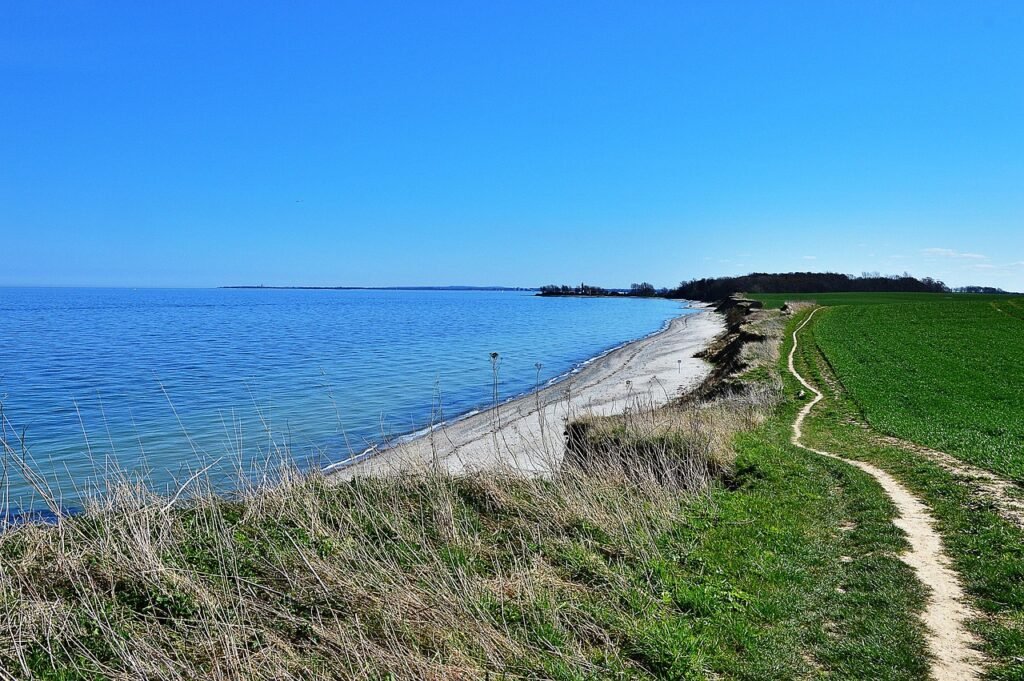Imagine sinking your toes into warm, soft sand, the rhythmic crash of waves serenading your senses, and the sun kissing your skin. Beaches, those magical meeting points of land and sea, offer a sanctuary from the everyday hustle and bustle. But beyond mere relaxation, they provide diverse ecosystems, thrilling recreational activities, and even contribute significantly to local economies. Let’s dive deep into the captivating world of beaches, exploring their various facets and unveiling the wonders they hold.
The Allure of the Beach: More Than Just Sand and Sea
Mental and Physical Wellbeing Benefits
The beach is more than just a pretty picture; it’s a natural therapy session. Numerous studies have highlighted the positive impact of spending time by the sea on our mental and physical health.
- Stress Reduction: The sound of waves has been shown to calm the mind and reduce stress hormones like cortisol.
- Vitamin D Boost: Sunlight exposure helps our bodies produce Vitamin D, crucial for bone health and immune function. (Remember to wear sunscreen!)
- Improved Mood: The negative ions in sea air are believed to increase serotonin levels, promoting feelings of happiness and wellbeing.
- Physical Activity: From swimming and surfing to beach volleyball and simply walking along the shore, beaches offer ample opportunities for exercise.
Economic Importance of Beaches
Beaches are significant economic drivers, supporting various industries and providing livelihoods for countless individuals.
- Tourism: Coastal tourism generates billions of dollars annually, attracting visitors from around the globe.
- Fishing Industry: Beaches often provide access points for fishing, supporting commercial and recreational fishing activities.
- Property Values: Coastal properties tend to have higher values, contributing to local tax revenues.
- Recreation and Entertainment: Beachfront businesses, such as restaurants, shops, and water sports rentals, thrive on beach-related recreation.
Exploring Different Types of Beaches
Sandy Beaches
The classic image of a beach, sandy beaches are formed by the accumulation of sand particles carried by waves and currents.
- White Sand Beaches: Often composed of quartz or coral fragments, these beaches are found in tropical and subtropical regions. Example: Hyams Beach, Australia.
- Black Sand Beaches: Formed from volcanic activity, these beaches contain dark minerals like basalt. Example: Punalu’u Black Sand Beach, Hawaii.
- Golden Sand Beaches: The most common type, golden sand beaches consist of a mixture of minerals, giving them a characteristic yellow hue. Example: Bournemouth Beach, UK.
Pebble and Rocky Beaches
Offering a different kind of charm, pebble and rocky beaches are characterized by larger stones and rock formations.
- Unique Landscapes: The rugged beauty of these beaches makes them visually stunning and ideal for photography.
- Geological Significance: They often reveal interesting geological formations and rock strata.
- Less Crowded: Pebble beaches tend to be less crowded than sandy beaches, offering a more tranquil experience.
Shell Beaches
A true natural wonder, shell beaches are formed by the accumulation of countless seashells, creating a unique and picturesque landscape.
- Biodiversity Hotspots: Shell beaches can be teeming with marine life, making them ideal for exploration and wildlife spotting.
- Fragile Ecosystems: It’s crucial to protect these delicate environments by refraining from collecting shells. Example: Shell Beach, Shark Bay, Australia.
Beach Activities: Fun for Everyone
Water Sports
Beaches are a playground for water sports enthusiasts, offering a wide range of activities for all skill levels.
- Surfing: Riding the waves is a thrilling experience, with beaches around the world offering ideal surfing conditions.
- Swimming: Enjoy a refreshing dip in the ocean, but always be mindful of currents and tides.
- Snorkeling and Diving: Explore the underwater world and discover vibrant coral reefs and marine life. Example: The Great Barrier Reef.
- Kayaking and Paddleboarding: A great way to explore the coastline and get some exercise.
Beach Games and Relaxation
Even without water sports, beaches offer plenty of opportunities for fun and relaxation.
- Beach Volleyball: A classic beach game that’s perfect for groups.
- Building Sandcastles: A creative and relaxing activity for all ages.
- Sunbathing: Soak up the sun and work on your tan (with proper sunscreen, of course!).
- Picnics: Enjoy a delicious meal with a stunning ocean view.
Fishing and Wildlife Watching
For those who prefer a more laid-back approach, fishing and wildlife watching can be incredibly rewarding.
- Fishing: Many beaches offer excellent fishing opportunities, whether from the shore or from a boat. Always check local regulations.
- Bird Watching: Observe a variety of seabirds and coastal birds in their natural habitat.
- Seal and Whale Watching: Depending on the location and season, you may be lucky enough to spot seals or whales.
Beach Safety: Essential Tips for a Worry-Free Visit
Understanding Hazards
Being aware of potential hazards is crucial for a safe and enjoyable beach experience.
- Rip Currents: Powerful currents that can pull swimmers away from shore. Learn how to identify and escape rip currents.
- Tides: Be aware of tidal changes, as they can affect water levels and create strong currents.
- Marine Life: Watch out for jellyfish, stingrays, and other potentially dangerous marine creatures.
- Sunburn: Protect yourself from the sun’s harmful UV rays by wearing sunscreen, hats, and sunglasses.
Safety Precautions
Taking simple precautions can significantly reduce the risk of accidents.
- Swim in Designated Areas: Choose beaches with lifeguards and designated swimming areas.
- Never Swim Alone: Always swim with a buddy.
- Follow Lifeguard Instructions: Pay attention to lifeguard warnings and instructions.
- Stay Hydrated: Drink plenty of water to avoid dehydration.
- Be Aware of Weather Conditions: Check the weather forecast before heading to the beach and be prepared for changing conditions.
Protecting Our Beaches: Conservation Efforts
Pollution and its Impact
Beaches are vulnerable to pollution, which can have devastating effects on marine life and human health.
- Plastic Pollution: Plastic waste is a major threat to marine ecosystems, harming wildlife and polluting the water.
- Oil Spills: Oil spills can cause widespread damage to coastal habitats and marine life.
- Sewage Runoff: Untreated sewage can contaminate beaches and pose a health risk to swimmers.
Sustainable Practices
We can all play a role in protecting our beaches for future generations.
- Reduce, Reuse, Recycle: Minimize your waste and recycle whenever possible.
- Pick Up Litter: Always clean up after yourself and encourage others to do the same.
- Support Sustainable Tourism: Choose eco-friendly tour operators and accommodations.
- Conserve Water: Reduce your water consumption to minimize sewage runoff.
- Educate Others: Spread awareness about the importance of beach conservation.
Conclusion
Beaches offer a unique blend of natural beauty, recreational opportunities, and economic benefits. They are vital ecosystems that support a diverse range of marine life and provide us with countless moments of joy and relaxation. By understanding the importance of beach safety and conservation, we can ensure that these precious resources remain pristine and accessible for generations to come. So, the next time you visit a beach, take a moment to appreciate its wonders and consider how you can contribute to its preservation.

